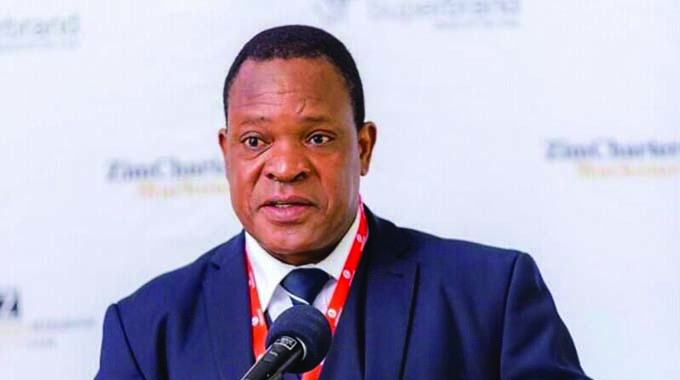
Nqobile Bhebhe
PRESIDENT Mnangagwa has revealed that he has exempted Lands, Agriculture, Fisheries, Water and Rural Resettlement Minister, Dr Anxious Masuka from distractions of constituency politics to solely focus on agriculture transformation as the country moves towards food security status.
Dr Masuka will be a non-constituency legislator.
In March, the Lands, Agriculture, Fisheries, Water and Rural Development ministry came out as the biggest winner in the 2022 performance evaluation results for Cabinet Ministers and senior Government officials, as both the Minister, Dr Masuka, and Permanent Secretary Dr John Basera were named best performers in their respective designations.

Dr Anxious Masuka
Writing in his weekly column for The Sunday Mail and Sunday News, President Mnangagwa said Dr Masuka’s “sole focus” will be on transforming agriculture.
“As your President, my covenant with you has been to banish hunger from our land. That goal is now well in sight, what with the massive investments we continue to commit towards weather-proofed agriculture, and, of course, the sheer hard work of all our farmers, big and small,” said the President
He said this year the country will congregate for the main independence celebrations in Mt Pfura which was renamed Mt Darwin as a food-secure Nation.
“I have released Minister Anxious Masuka from distractions of constituency politics so his sole focus and sole politics relate to this one goal of transforming our agriculture for a food-secure Nation for all times. He will be a non-constituency Member of Parliament, so he has enough time to live, think and dream agriculture only,” he added.
Transforming agriculture is at the epicentre of Government’s Vision 2030, which is aimed at ensuring a prosperous upper middle-income society by 2030.
The vision embraces viability of the agriculture sector, as enshrined in the ambitious Agriculture and Food Systems Transformation Strategy (2020-2025), which President Mnangagwa launched in 2020.
The strategy seeks to ensure that by 2025, Zimbabwe is food secure, with limited food imports, a country that has deepened and broadened exports of agricultural products, and created employment of up to one million jobs in the agriculture sector.
On rural industrialisation, President Mnangagwa said the drive should become the next greatest miracle Zimbabwe showcases and shares with the rest of the continent.
“This thrust must strengthen as we move into the future. Rural industrialisation should become the next greatest miracle Zimbabwe shows to, and shares with our African brethren. China did no less, and lifted millions out of poverty.
“Again, I expect more involvement of our tertiary institutions, which must engage in purposeful, community- and local resource-based research for rural industrialisation.”
Rural industrialisation, which is part of the Second Republic’s devolution agenda, involves nurturing agro-processing start-up enterprises in rural areas through financial and technological support via venture capital funding and Government agencies.
Through rural industrialisation, the Government hopes to stem rural-urban migration which saps growth from the countryside.
President Mnangagwa added that the country’s rural industrialisation drive should be a shining beacon to the rest of Africa.
Last week, the Cabinet revealed that Zimbabwe and Ethiopia are the only two African countries to achieve wheat self-sufficiency with the Government having increased the 2023 winter wheat production target to 85 000 hectares from 80 388 planted in 2022 to further solidify gains from the previous year.
Most farming activities are in the rural areas.
“Cabinet is pleased to inform the nation that during the 2022 winter cereal production season, Zimbabwe together with Ethiopia were the only countries in Africa that attained self-sufficiency in wheat, with 375 131 metric tonnes being produced, against a national requirement of 360 000 metric tonnes,” Minister of Information, Publicity and Broadcasting Services Monica Mutsvangwa said during a post-Cabinet briefing in Harare.